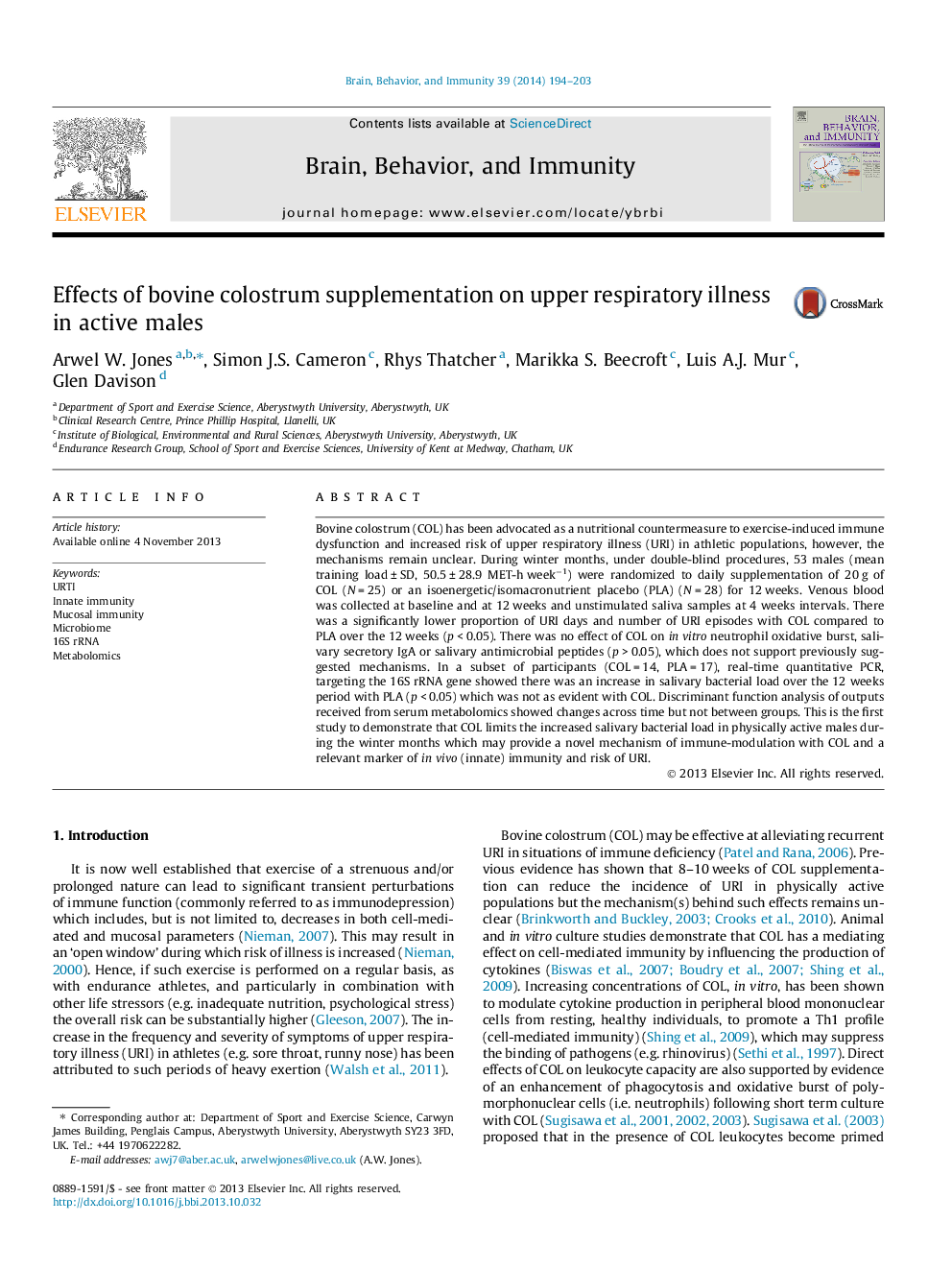| Article ID | Journal | Published Year | Pages | File Type |
|---|---|---|---|---|
| 922067 | Brain, Behavior, and Immunity | 2014 | 10 Pages |
Highlight•This is the first study on salivary microbiome in athletes, showing increased bacterial load during winter months which is limited with bovine colostrum supplementation.
Bovine colostrum (COL) has been advocated as a nutritional countermeasure to exercise-induced immune dysfunction and increased risk of upper respiratory illness (URI) in athletic populations, however, the mechanisms remain unclear. During winter months, under double-blind procedures, 53 males (mean training load ± SD, 50.5 ± 28.9 MET-h week−1) were randomized to daily supplementation of 20 g of COL (N = 25) or an isoenergetic/isomacronutrient placebo (PLA) (N = 28) for 12 weeks. Venous blood was collected at baseline and at 12 weeks and unstimulated saliva samples at 4 weeks intervals. There was a significantly lower proportion of URI days and number of URI episodes with COL compared to PLA over the 12 weeks (p < 0.05). There was no effect of COL on in vitro neutrophil oxidative burst, salivary secretory IgA or salivary antimicrobial peptides (p > 0.05), which does not support previously suggested mechanisms. In a subset of participants (COL = 14, PLA = 17), real-time quantitative PCR, targeting the 16S rRNA gene showed there was an increase in salivary bacterial load over the 12 weeks period with PLA (p < 0.05) which was not as evident with COL. Discriminant function analysis of outputs received from serum metabolomics showed changes across time but not between groups. This is the first study to demonstrate that COL limits the increased salivary bacterial load in physically active males during the winter months which may provide a novel mechanism of immune-modulation with COL and a relevant marker of in vivo (innate) immunity and risk of URI.
